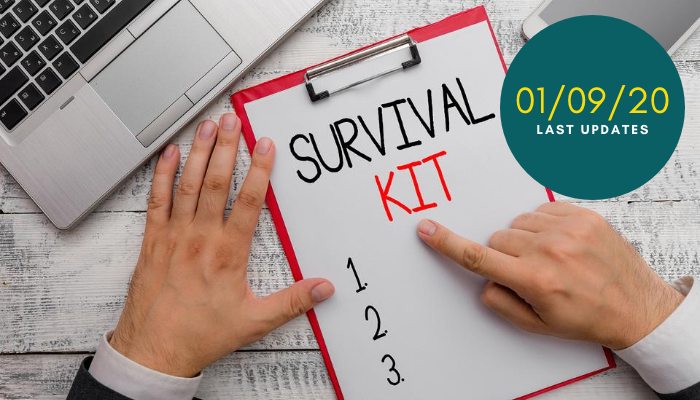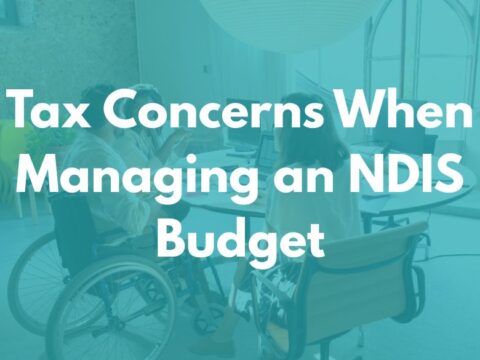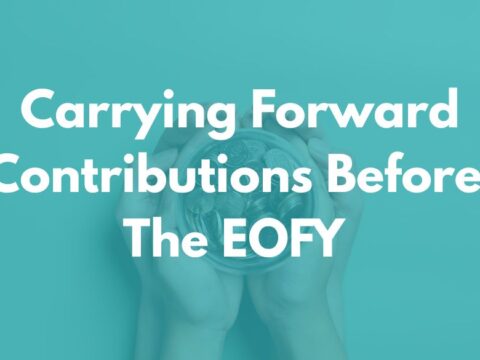2020 Small Business Survival Guide
It’s clear we’re headed for some tough economic times. Many businesses have already been impacted profoundly and are wondering how they will survive. While there are large and shocking examples (like Qantas), what’s even more concerning is watching the impact on everyday small businesses all around us.
Visit any restaurant, cafe or most retail stores in the city right now and you’ll see usually bustling venues looking virtually empty. Strike up a conversation with any of those business owners and you’ll hear – more likely feel – all their uncertainty, stress and fear. It’s not just the dreaded virus that has done this to them by the way, our recent summer of unprecedented bushfires also saw significantly diminished patronage in what is usually their time of cashing up before the long winter – and this is seen right across Australia.
With small and micro businesses being the backbone of our economy (and society), we should all be worried when they’re worried.
If you are in small business, the time to act is right now! There are a number of straightforward, practical steps you can be taking to give you the best chance of survival. Unless you’re in the supermarket or toilet paper business, keep reading…
The keys will be staying on top of your cash flow, minimising expenses and staying close to your customers and prospects.
Have visibility over your cash situation
If you still aren’t preparing cash flow statements and forecasts, now is definitely the time to invest in getting that done or learn how. You need to know what’s coming up on the horizon and whether you’ll be able to pay every bill.
This will also help you time any important purchases or investments in your business so that you don’t harm your ability to pay other things (e.g. your BAS) later.
The most important reason to do this in the current climate is so that you can make rational decisions specific to your business, in a time where you’ll be hearing a lot that is scary and emotional. Your analysis may reveal your business is in fact fine and making some of the changes below would be a mistake. Knowing your cash position means you won’t make rash or unnecessary business decisions and keep you from overreacting emotionally after an accidental binge-watch of the news!
Look at finance options
If you do prepare a cash flow statement and are aware of all the important purchases you will be making, you can look at creative cash flow solutions to avoid parting with too much cash upfront. If your car or premises are financed, you can look at refinancing now at lower rates to save significantly on your repayments. If you need to invest in a new piece of equipment, you can look at doing that in a variety of ways to spread out your payments. You can also look at using any unencumbered assets you may have to open up more funding options for you.
It is worth speaking to a professional about your options sooner rather than later. You’re better off making all the necessary changes now to enable borrowing from an established institution at 5% interest rather than a newer, less picky one at the 11th hour at 30%! These figures aren’t exact but you get the point…
Chasing up debtors
Bearing in mind you may need to be understanding and lenient with your customers too, this is not the time to allow your accounts receivable to go unchecked while you “focus on other things.”
Ensure invoices and automated reminders are going out as usual and chase up overdue accounts where you can. Of course, invite customers to engage with you if they’re experiencing any difficulties and be kind. However, don’t simply drop the ball on collections.
Part of not dropping the ball includes considering alternative options such as debtor finance (where an invoice is partly or wholly paid to you by a third party). Depending on the invoice size, time elapsed, the debtor and some other factors, you may have different options available to you. Important to get professional advice on this one.
Negotiate with creditors
If you are renting premises and operate in a heavily affected industry e.g. retail or hospitality, now is the time to start flagging concerns with your landlord and negotiating any possible changes. They may allow you to delay rent payments by a number of months, receive a reduction or at least not continue with a planned increase – it will all make a difference.
Based on your own situation, looking at each of your creditors individually will help you identify any potential savings – which you can then act on quickly (before their own businesses are slow to respond to calls and emails).
If you have business loans, assistance announced by the Australian Banking Association (allowing a 6 month deferral of all loan repayments for small businesses hit by the pandemic) may also apply.
NSW Government Small Business Support Grant
The NSW Government has announced a $10,000 grant for small business owners effected by COVID-19. This funding is to be used for unavoidable costs such as utilities, overheads, legal costs and financial advice. To be eligible for the grant, businesses must demonstrate that they have been highly impacted by the NSW Government health directions in relation to COVID-19. Highly impacted industries include retail; accommodation and food service; rental, hiring and real estate services; administrative and support services; and arts and recreation services. To learn more about the eligibility criteria for this grant, visit Service NSW.
NSW Government Small Business Recovery Grant
As restrictions across NSW are being lifted, the government is providing a small business recovery grant between $500 and $3000 to eligible small businesses and non-for-profits. The purpose of the grant is to help businesses meet the costs of safely reopening or upscaling operations, and the funds can be used to cover a range of expenses made after 1 July 2020. These include but are not limited to: fit-out changes, staff training or counselling, advertising, communications, and cleaning products or services. Applications are open now and the deadline to apply is 11:59pm AEST on Sunday 16 August 2020. To learn more about the eligibility criteria for this grant, visit Service NSW.
Paying taxes
If the next BAS bill comes along and you are simply not in a position to pay, you can always negotiate payment plans with the ATO. However, given many other finance options (particularly with banks) generally become unavailable with the presence of an unpaid ATO debt, you should be extra careful to prioritise paying tax liabilities (especially if you expect to seek finance).
The federal government has announced assistance measures that will assist with your BAS and the NSW government announced some further measures soon after. A summary of both follows below:
Federal Government:
- Allowing a 100% refund on PAYG withholding payments for businesses with employees and group turnover less than $50 million. The minimum refund is $10,000 and maximum is $50,000. Then, in the July – October 2020 period, entities will receive an additional payment equal to the total of their first payment (making the total available min. $20,000 and max. $100,000).
- A wage subsidy of 50% of an apprentice’s or trainee’s wages for nine months, to 30 September 2020. Also available for employers who hire new apprentice’s or trainee’s during this time.
- Increasing the instant asset write-off threshold to $150,000 up to 31 December 2020 for businesses with an annual group turnover of less than $500 million.
- Accelerating depreciation deductions for assets that cannot be immediately written off for tax purposes. 50% of the cost can be deducted on installation, with existing depreciation rules applying to the balance, for assets purchased up to 30 June 2021.
- A 6-month deferral of payments due through the BAS (including PAYG instalments), income tax assessments, fringe benefits tax assessments and excise.
- Allowing businesses on a quarterly reporting cycle to opt into monthly GST reporting so they can get quicker access to GST refunds they may be entitled to.
- Permitting businesses to vary PAYG instalment amounts to zero for the March 2020 quarter. Businesses that do this can also claim a refund for any instalments made for the September 2019 and December 2019 quarters.
- Remitting any interest and penalties that have been applied to tax liabilities and were incurred on or after 23 January 2020.
- Working with affected businesses to help them pay their existing and ongoing tax liabilities by allowing them to enter into low interest payment plans.
- Note: employers will still need to meet their ongoing super guarantee obligations for their employees.
NSW Government:
- Waiving payroll tax for businesses with payrolls of up to $10 million until the end of financial year.
- Increasing the payroll tax cut threshold limit to $1 million for the next financial year.
Be sure to speak to your accountant to make the most of these measures.
Tightening your belt
Every business has different expenses and ideas on what they should spend on. What are the luxury items you can cut right away? Have you been shouting your team lunch every Friday?
Every luxury item should be considered first. Before the harder part…
Qantas stood down 20,000 out of 30,000 staff after just a few weeks’ strife. Most hospitality venues have slashed their casual pools and even permanent staff. People will understand if your micro or small business simply doesn’t have enough work to go around.
Reducing your workforce is never a nice feeling, but in a downturn it may be a necessary cost-cutting measure. In small businesses, consider all the nuanced options too like reducing hours or pay (even after an open discussion with staff) rather than making cuts right away. Perhaps two full-timers will agree to become two part-timers temporarily rather than you having to let one go.
Consider all options but, at the end of the day, if staff need to go – you need to be able to do that and justify it (to yourself) with a cash flow forecast showing there was no other way. Where possible, help your staff find new homes by making LinkedIn posts or recommendations praising them, and offer to provide a reference along with anything else you can do.
JobKeeper wage subsidy payments
On 30 March, the government announced the 4th stimulus package – $130 billion dollars’ worth – concerning the JobKeeper payments. The intention is to help small businesses keep their people employed by subsidising part of their wages. For businesses under $1 billion in annual turnover, you will have to demonstrate a 30% drop in revenue or expected revenue, against a comparable period (of at least one month) last year, due to coronavirus. You will then be eligible for a fortnightly payment of $1,500 per eligible employee (full-timers, part-timers and also any casuals who have been on board for a min. of 12 months) from 30 March 2020 for a maximum of 6 months. This will also apply to any staff who are stood down or rehired.
The ATO will distribute JobKeeper payments at the end of each month, with the first payments commencing the beginning of May 2020. However, these payments can be claimed from 30 March 2020.
Unlike the PAYGW refunds, this scheme is only available on application and eligibility will be assessed. If you are interested in learning more, click here, and if you’re ready to enrol for the payments, click here.
JobKeeper 2.0
For the latest about JobKeeper, visit: JobKeeper Update.
New payment amounts: From 28 September 2020 (when the initial scheme would have ended), the payment amount will be reduced from $1,500 per fortnight to $1,200, and to $750 per fortnight for those who work less than 20 hours a week. Then from 4 January 2021, the amount will be reduced to $1,000 and $650 per fortnight, respectively.
Eligibility: To qualify for the payments from 28 September, businesses will have to reapply. They will be required to demonstrate an ongoing decline in turnover using actual GST turnover for the June and September quarters. This will need to be demonstrated again for the December quarter in order to qualify for the payments from 4 January 2021.
The decline in turnover rules to test if an organisation may qualify remain the same:
- 30% reduction for businesses with annual turnover less than $1 billion
- 50% reduction for businesses with annual turnover more than $1 billion
- 15% for ACNC-registered charities
JobKeeper 2.0 is expected to run until 28 March 2021.
Staying close to customers and prospects
This too shall pass and, when it does, you don’t want to be rebuilding your client list or sales funnel from scratch. Skype is an amazing tool (just one of many) and there is every opportunity for you to stay in close contact, not just with all your current customers but also with all your sales prospects.
Keep nurturing relationships, keep people informed about your business and keep investing in the people who will buy from you when the situation improves for everybody. To focus on other things and ignore this would be a costly mistake.
Business model innovation
An additional consideration here should be whether any changes to your products/services and pricing (your business model) could enable you to sell to these prospects sooner. For example, if you’re an executive coach and suddenly no-one is able to meet in person, this may be the time to create that wholly online program you have been meaning to get around to. And use free, or less expensive, Zoom sessions as initial meetings to help recruit people into the online course. You’re the expert in your field so think creatively.
Summary
It’s not all doom and gloom. With federal and state governments, a range of banks and many other organisations all stepping in to offer assistance or leniency, there is a lot of help available to get through this. Make sure you get what you’re entitled to and ask for help when you need it.
Whether it takes three months or six, this madness will eventually pass and – if your business is to survive – you need to keep a cool head and analyse your own business separately from the broader context. As mentioned earlier, getting ahead of your own cash flow situation will add so much value. Being able to analyse your own business will enable you to make the right decisions for your business – not the broad brush tips professionals (like us) are providing in posts like these. Take these posts (and the news) with a grain of salt and always engage 1:1 with professionals you would like more advice from. The news they have for you may be more reassuring than you expected after all.
As always feel free to contact us if you would like to chat, we’re in business as usual mode – albeit working from home and virtually where possible.
Stay safe and talk soon!
Last updated: 1 September 2020
Important Notice
The content of this post is general in nature. Any general advice has been prepared by Allworths without reference to your objectives, financial situation or needs. You should consider the advice in light of these matters and, if applicable, the relevant product disclosure statement before making any decision to invest. Allworths is not in any way recommending any of the products referred to in this article and they are used for reference purposes only.




